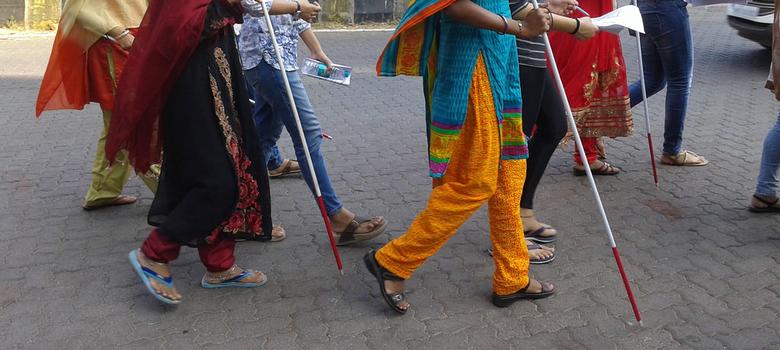Call for Papers – June 2017
Theme: Women with Disability
As a feminist theological journal in Asia, IGI would like to acknowledge that the issue of disability has not received enough attention as a subject for critical feminist reflection either in the feminist movement or in feminist theology. It is a fact that often, as feminists, we too are indifferent to the experiences of women with disabilities and are responsible for their invisibility in much of our feminist theorizing, theologising, strategizing and movement-building.

As Elly Elshout says,
“Women with disabilities experience exclusion in both the policies of disability rights and in the feminist movement. In the latter instance, various feminist strategies contradict the needs and interests of women with disabilities. … Feminists who criticize the traditional sex roles of wife and mother are not sensitive to the fact that women with disabilities are taught from a very early age that they are not fit to be lover or wife, let alone mother. Women with disabilities are taught that they are asexual. Surely this is oppressive heterosexism. The feminist movement is also not sufficiently conscious of its own “ableism.” The feminist movement enables, empowers, and strengthens women. Thus many “fit women” will not easily admit that women with disabilities embody all that they don’t want to be. As a result the patriarchal way of judging a person on how good-looking, healthy or productive he or she is, is perpetuated by feminists. Women in this way, continue to victimize each other. This victimization is insidious. Before we can work together to overcome it, we must first understand how patriarchy defines and excludes the disabled person.” [“Women with Disabilities A Challenge to Feminist Theology”, Journal of Feminist Studies in Religion Vol. 10, No. 2 (Fall, 1994), p.100. Indiana University Press. http://www.jstor.org/stable/25002234]
Keeping this in view, and recognising the need to create a space for hearing the persons with disabilities, the June 2017 issue of IGI will focus on the experience/stories of those with disabilities, their struggles as persons with disabilities and how they reflect on this for themselves.
The issue will not be confined to women with disabilities but is also open to other genders with disabilities who may wish to write as well. Our use of the term “Persons with Disabilities” also includes all those with serious and/or chronic, though not necessarily visible health problems”.
This issue could include articles covering the following (this is not an exhaustive list and other related topics on disability could also be included):
- Reflections of people with disabilities about God, our “neighbour” and what is Church from their perspective
- Articles about disability from a “human rights” perspective
- Reflections on how persons with disabilities reflect on certain biblical themes like the Miracle stories or Healing Stories (that promise immediate healing which may not be the reality in the lives of most persons with disabilities).
- Critical essays that acknowledge and analyse the differences in “power” which exist among women with and without disabilities.
- Debates by people with disabilities who challenge those who speak about the right to health instead of the right to health care.
- Articles that can provide a new and critical perspective in issues of health care, reproductive technology and the dilemmas of caregiving and career that people with disabilities face.
- Critical analysis of how caste, class, race, poverty and religion also determine how ‘disability’ is experienced by the one with the disability.
- Articles outlining the challenges of living with disabilities
We hope to have articles from the perspective of all types of disability and not just few types of disability, [for example, more articles by those who have disability as a result of polio and nothing from those with hearing disabilities], so that we can widen our horizons about all types of disabilities, their experiences and reflections.
As always IGI includes all forms of reflections like essays, poems, art work, photographs, liturgies, and any other form that is publishable in print. Reports of any significant event related to this theme which the organisers are willing to share with IGI are also welcome. Book reviews of books related to this theme are also welcome.
Recommended word limit for each article: 1000 to 4000 words
Send articles to : igi@awrc4ct.org AND coordinator@awrc4ct.org
Submission date : 28 February 2017
Editorial decision on publishing articles submitted will be conveyed by: 20 March 2017
Asian Women’s Resource Centre in India (AWRC)
No.74 (Old No.94), 1st Floor, 4th Street, Abhiramapuram, Chennai – 600018, Tamil Nadu, India
Phone: +91-44-24992645.
Email: awrcindia@gmail.com.